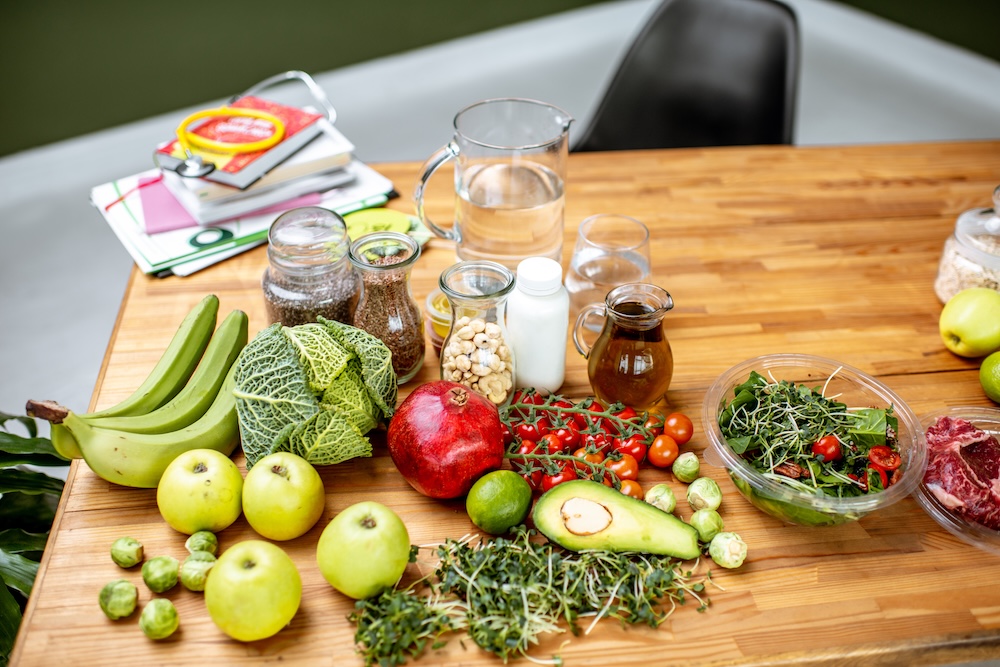(We cross-referenced scientific studies, nutrition guidelines, and recent meta-analyses. Some of these foods have been unfairly judged—what do you think?)
🥚 1. Eggs (Yes, the yolk too)
The myth: Eggs are high in cholesterol, so they must be bad for your heart.
What we found: Decades ago, dietary cholesterol was thought to directly raise blood cholesterol. But modern research—including a 2020 review in BMJ and a 2023 meta-analysis in Circulation—shows that for most people, eggs have little impact on blood cholesterol levels. In fact, eggs can raise HDL (the “good” cholesterol), which supports heart health.
Nutritionally speaking: One egg contains 6 grams of high-quality protein, essential fats, choline (crucial for brain development), and antioxidants like lutein and zeaxanthin that protect eye health. The yolk is where most of this nutrition lives.
Why it matters: Demonizing the yolk might be leading people to miss out on important nutrients—especially in low-meat or vegetarian diets.
🟡 Sound off: Do you skip the yolk or embrace the whole egg?
☕ 2. Coffee
The myth: Coffee is dehydrating, addictive, and bad for your heart.
What we found: Recent large-scale studies consistently show that moderate coffee intake (3–4 cups per day) is linked to lower risks of type 2 diabetes, Parkinson’s disease, Alzheimer’s, stroke, and even some cancers. In 2021, the European Society of Cardiology noted that habitual coffee drinking was associated with a longer lifespan.
Nutritionally speaking: Coffee is the #1 source of antioxidants in many people’s diets. Chlorogenic acid and other polyphenols in coffee may reduce inflammation and support vascular function.
Why it matters: Unless you have a caffeine sensitivity or a heart arrhythmia, your morning brew may actually be helping you—not hurting you.
🟤 Tell us: Does coffee improve your focus—or mess with your sleep?
🍌 3. Bananas
The myth: Bananas are too sugary and will spike your blood sugar.
What we found: While bananas are higher in carbs than berries, they come with natural fiber (including resistant starch in greener bananas) and potassium, which helps regulate blood pressure and support muscle and nerve function.
Nutritionally speaking: A medium banana offers ~3 grams of fiber, ~400 mg of potassium, vitamin B6, and prebiotics that feed healthy gut bacteria.
Why it matters: The natural sugars in bananas are not the same as added sugars—and when paired with protein or fat (like peanut butter), bananas make an excellent energy-balancing snack.
🍌 Your take: Do you prefer them spotty and sweet, or green and firm?
🥥 4. Coconut Oil (used smartly)
The myth: It’s full of saturated fat, so it must clog your arteries.
What we found: While coconut oil is high in saturated fat, much of it is in the form of medium-chain triglycerides (MCTs), which your liver quickly uses for energy rather than storing as fat. Some studies suggest it may support metabolism and cognitive function in moderation.
Nutritionally speaking: It’s shelf-stable, good for high-heat cooking, and may have antibacterial properties. It’s also a staple in many traditional diets linked to good health outcomes.
Why it matters: No one’s suggesting you slather coconut oil on everything, but used occasionally (especially for roasting or stir-frying), it can be a functional part of a balanced kitchen.
🥥 We’re curious: Do you cook with it or avoid it?
🧂 5. Salt (when used appropriately)
The myth: Everyone needs to go low-sodium.
What we found: While excess salt can contribute to high blood pressure in some people, many individuals—especially athletes, manual laborers, or those eating whole foods—actually need sodium to maintain electrolyte balance.
Nutritionally speaking: Salt helps regulate hydration, nerve impulses, and muscle function. Over-restricting it can lead to fatigue, muscle cramps, or even hyponatremia in extreme cases.
Why it matters: Public health advice rightly focuses on processed food reduction (a major sodium source), but the salt you add at home is rarely the culprit—and for some, a little more might actually be helpful.
🧂 Hot take: Have you ever tried tracking your sodium intake?
🍫 6. Dark Chocolate (70% or higher)
The myth: Chocolate is just candy.
What we found: Cocoa is rich in flavanols, which have been shown to support circulation, reduce inflammation, and improve cognitive function. A 2022 Harvard review noted improvements in blood flow and blood pressure from daily intake of high-cacao chocolate.
Nutritionally speaking: Dark chocolate (70%+) contains iron, magnesium, and antioxidants. Just a square or two (10–20g) can deliver benefits without sugar overload.
Why it matters: A small treat that’s satisfying and good for your heart? That’s a win.
🍫 Your move: Is dark chocolate part of your daily ritual?
🥛 7. Full-Fat Dairy
The myth: Full-fat dairy will clog your arteries and make you gain weight.
What we found: A growing body of evidence shows that full-fat dairy may be more filling and metabolically beneficial than low-fat versions. Some observational studies even associate it with lower obesity and type 2 diabetes risk.
Nutritionally speaking: Whole milk, full-fat yogurt, and cheese contain fat-soluble vitamins (A, D, E, K2) and beneficial fatty acids like conjugated linoleic acid (CLA).
Why it matters: Many “low-fat” dairy products compensate with added sugar. Choosing full-fat can support hormonal balance, satiety, and nutrient absorption.
🥛 Chime in: Are you team 2%, whole, or dairy-free altogether?
Final Sip: Healthy Is Contextual
Nutrition isn’t black and white. One person’s poison might be another person’s performance booster. When you zoom out and look at the whole diet and lifestyle, many “bad” foods aren’t actually bad at all—they were just misunderstood.
👉 Over to you: Did any of these surprise you? Are there any you still avoid—or swear by? Let’s make the comments section the real debate table.
(Disclaimer: This article is for informational purposes only and not a substitute for personalized medical advice.)








Reader Interactions